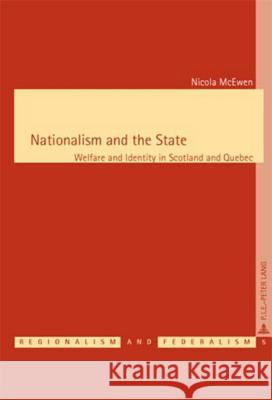Nationalism and the State: Welfare and Identity in Scotland and Quebec » książka
Nationalism and the State: Welfare and Identity in Scotland and Quebec
ISBN-13: 9789052012407 / Angielski / Miękka / 2018 / 212 str.
Since the mid-1970s, many developed states have reduced the size and scope of their welfare systems. At the same time, states have faced growing demands for self-government from national minorities. These twin processes have had a substantial impact upon the structure, power and legitimacy of the state, yet few have considered their inter-relationship.
This book aims to fill this gap by conducting a focused comparison of nationalism and welfare development in Scotland and Quebec. The recent emergence of Scottish and Quebecois nationalism took place against a backdrop of welfare retrenchment. Did the post-war welfare state contain these territorial identities and strengthen attachment to the state among Scots and Quebecers? Did the retrenchment of state welfare lead to demands for greater self-government?
Demands for Scottish self-government led to the creation of the Scottish Parliament and the devolution of power over wide areas of social policy. The book examines the complexities of welfare development in multi-level states, drawing upon the Quebec-Canada experience to explore the relationship between nationalism and welfare development in post-devolution Scotland."











